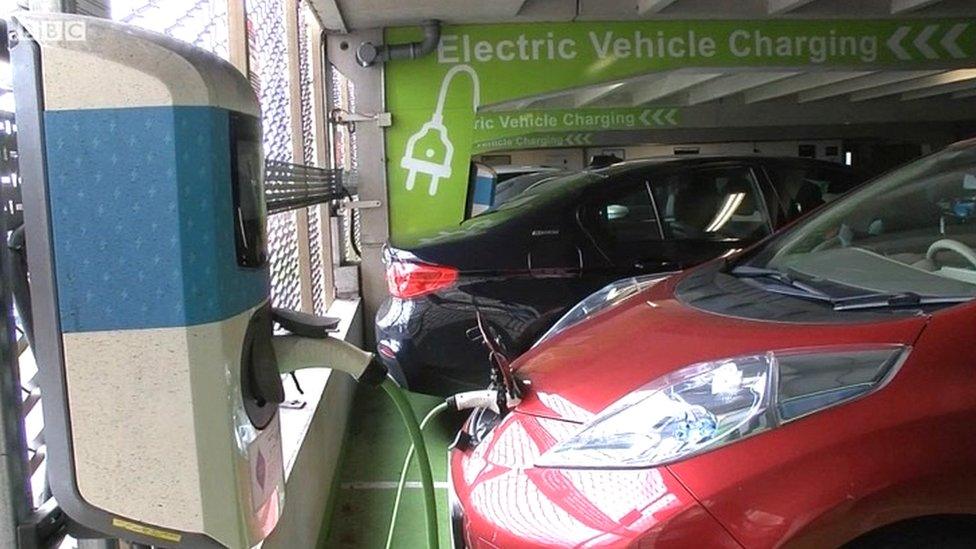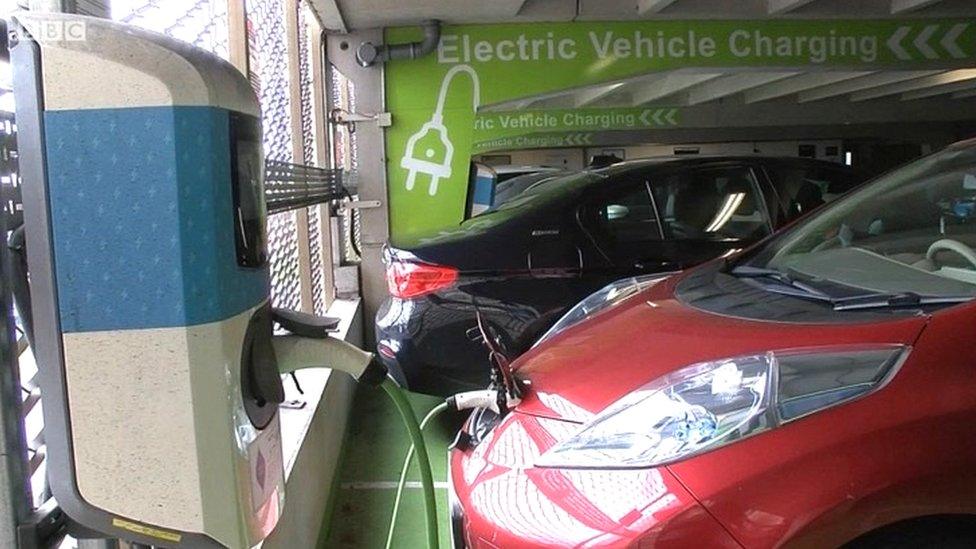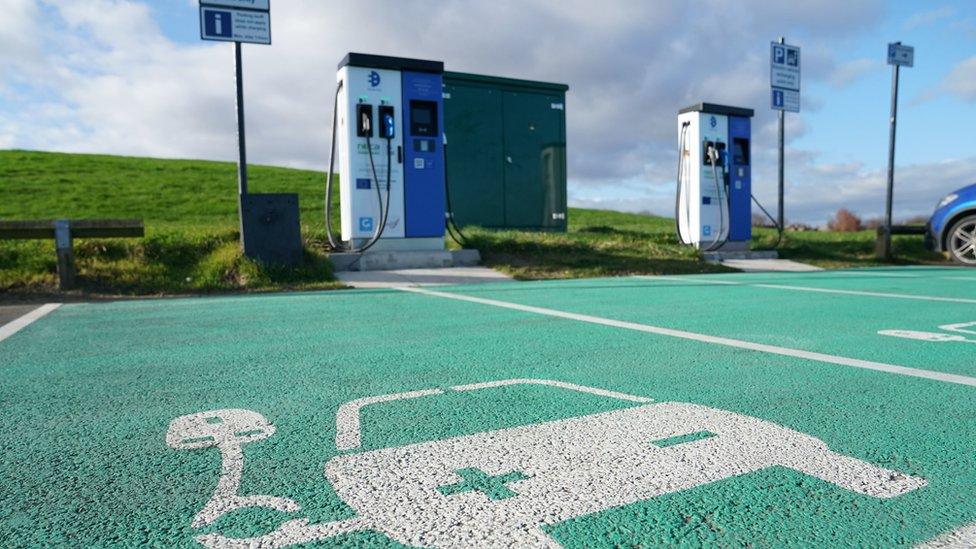Electric cars will leave hole in tax revenues, says Treasury
- Published
- comments

Taxes must increase or services be cut to compensate for the loss of fuel tax income thanks to the advent of electric cars, the Treasury has admitted.
Officials have been long concerned about the future loss of more than £30bn in revenue from drivers.
In a new review, external the Treasury has acknowledged the problem in a way that will spark a debate about how driving should be taxed in the future.
One idea would be to charge motorists for every mile they drive.
But the AA says such road pricing will be tough to sell politically.
Instead, the motoring organisation is proposing a system of "Road Miles" in which motorists are allowed to drive free of charge for 3,000 miles (4,000 in rural areas) before they start paying.
The Treasury review offers another striking conclusion from a government department traditionally worried about harm to the economy from cleaning up the UK's emissions.
The latest message is the opposite - that tackling climate change might even benefit the economy by giving the UK a lead in clean technologies.
It says: "Overall, in the context of the rest of the world decarbonising, the net impact of the transition on growth to 2050 is likely to be small compared to total growth over that period.
"It could be slightly positive or slightly negative."
The document continues: "Climate change is an existential threat to humanity. Without global action to limit greenhouse gas emissions, the climate will change catastrophically with almost unimaginable consequences for societies across the world."
Environmentalists welcome what they say is a dramatic change in tone from the Treasury,
Doug Parr from Greenpeace told BBC News: "Finally the Treasury has admitted that tackling climate change could actually be good for the economy.
"For years it's been a total drag on climate policies - it used to get in the way of any good proposals."
He said the Treasury should save money by scrapping the £27bn roads programme and the £100bn HS2 rail line - both of which will increase carbon emissions.
Will the UK be ready for a 2030 ban on sales of petrol and diesel cars?
Nick Mabey from the think tank e3g told BBC News the document raised false fears that the UK would lose industries to nations with dirty economies if the UK decarbonised.
He said: "This report shows the Treasury still has a lot of homework to do to understand the full implications of the clean energy revolution for Britain.
"The report talks about the opportunities of moving to net zero but still underplays the benefits of cleaner air and healthier cities.
"[The Treasury has] still not grasped that British industry is not at risk from dirty imports but from industries powered by cheap solar power in Tunisia, the Gulf and Australia."
"The obvious implication of this report is that the UK can afford to move faster to reduce climate risks."
But both men praised the Treasury for accepting that the big challenge for climate policy will be fairness, not technology.
Its document - an interim review - said poorer people must be protected from the changes in employment and taxation, or the government would lose support for cleaning up emissions.
This message was strongly advocated by the Citizens Assembly, external devised to gauge the opinions of the public on climate policy.
Related topics
- Published18 November 2020

- Published18 November 2020
